Who was Theresa May's political hero Joseph Chamberlain?
- Published
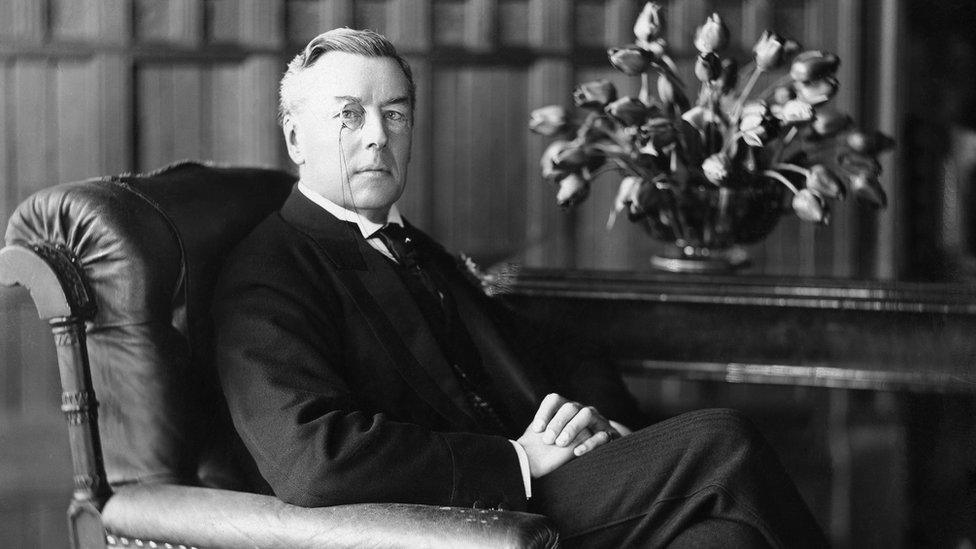
In her first major policy speech one of the people incoming Prime Minister Theresa May name checked raised more than a few eyebrows.
After the customary references to Margaret Thatcher and Robert Peel, she mentioned someone not usually held up in the pantheon of Tory pin-ups - the great Birmingham political figure, Joseph Chamberlain.
Perhaps we shouldn't have been too surprised, her co-chief of staff and most trusted adviser Nick Timothy (a Brummie), is known to be an enormous fan. So much so, he wrote a book about him.
But who was Joseph Chamberlain?
Chamberlain was a maverick, a Victorian chameleon. Arguably he was Britain's first truly modern political figure, an industrialist and businessman who made his way to the cabinet. He was certainly the first major politician to forge his career in local government.
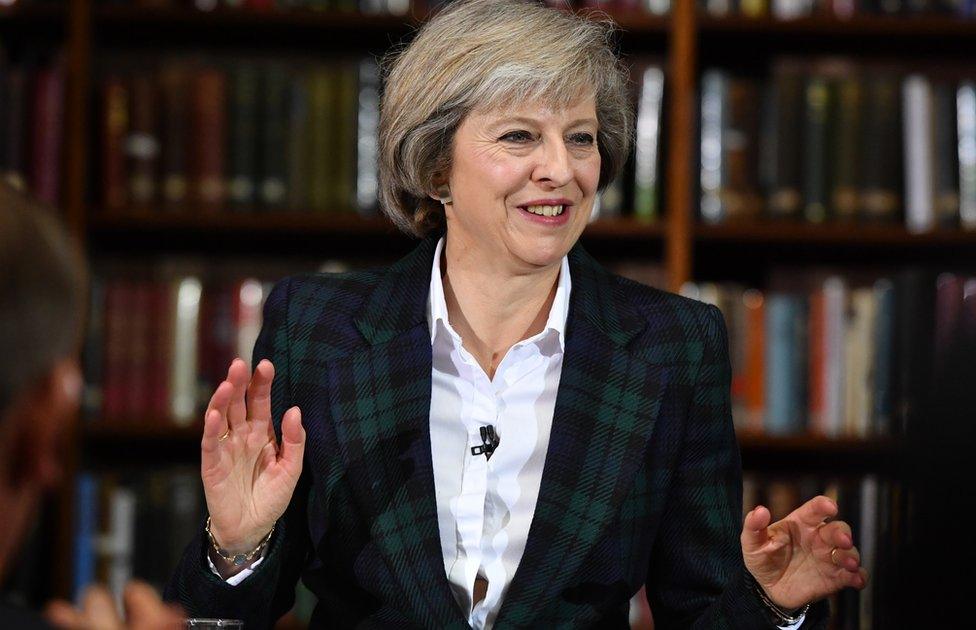
Although not a Brummie by birth, he made the city his adopted home. The son of Unitarian parents, he built a profitable business manufacturing screws in the city but was not impressed by the conditions in which his workers had to live.
After 30 years of rapid industrial expansion, Birmingham was choking on its own filth. The centre was a convoluted warren of factories, slums and grime. Rival water and gas companies competed with each other mercilessly and yet had each singularly failed to provide the population with a reliable water or power supply.
Chamberlain changed all of that. In just three short years as mayor, he transformed the city from an oversized slum to one of the most advanced cities in the world.
He took the gas and water supplies into city ownership and provided its residents with the cleanest and most effective water and power supplies anywhere in the country.
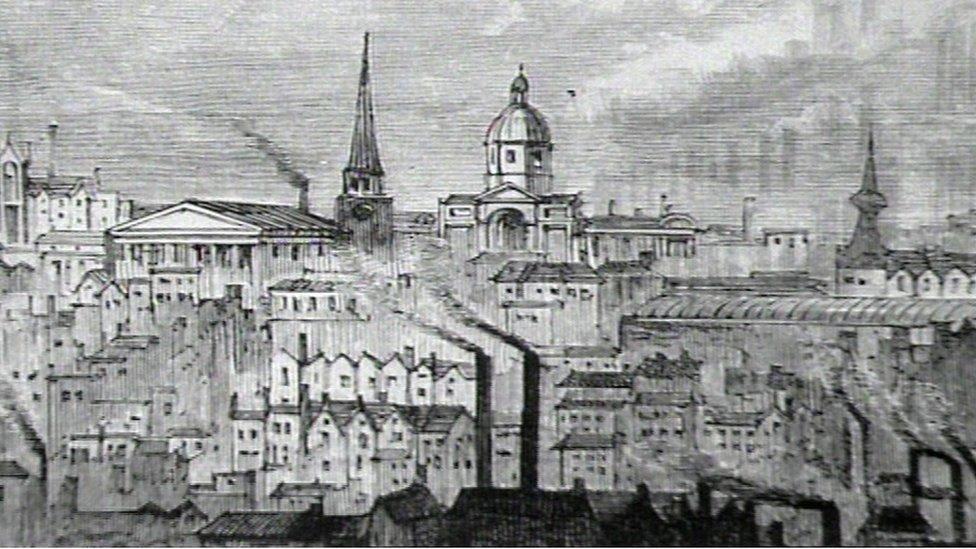
He ploughed the proceeds into new housing, sewers and civic buildings, a new museum and art gallery, a grand boulevard to rival any street in Paris - today's Corporation Street - and a university. He was the man who built Birmingham.
So, an admirable figure for an incoming Tory prime minister to laud? Well, sure, save for the minor detail, that he wasn't a Conservative.
Chamberlain started his political life as a Liberal but split from party over the prime minister William Gladstone's policy of Home Rule in Ireland.
An avowed imperialist, he took a sizeable cohort of his party's MPs with him, forming the Liberal Unionists. Eventually, the Liberal Unionists and the Conservatives merged, forming the Conservative and Unionist Party - the name remains today.
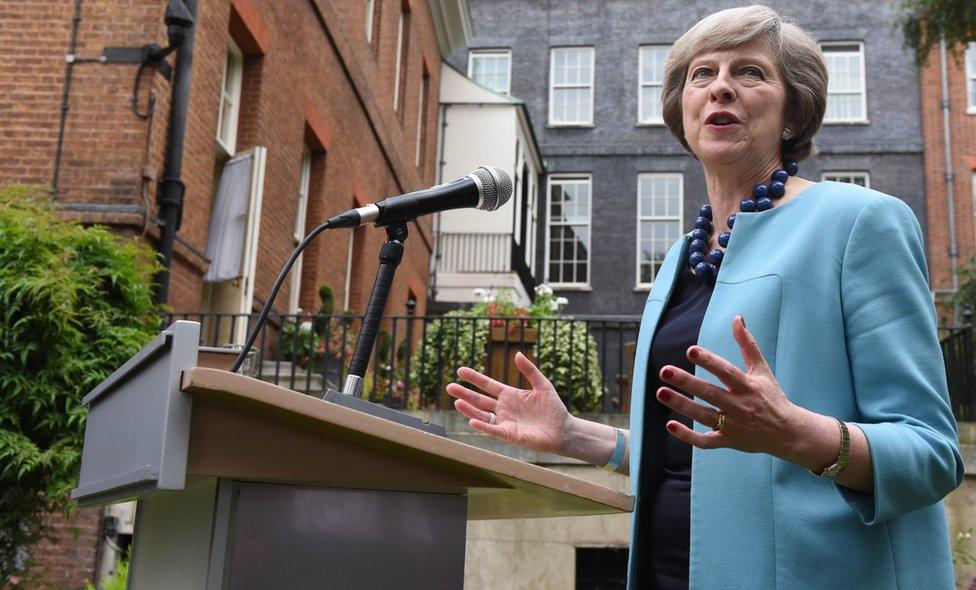
Theresa May referenced this in her speech, reminding the audience of her party's full name.
This was of course a signal of her commitment to the union between the different countries of the United Kingdom, but it was also a nod to something else - the political and intellectual tradition Chamberlain epitomises, the union between Conservatism's upper class base and the working people of Britain.
Chamberlain and the Liberal Unionists changed the Conservative Party. They brought with them a focus on the working class and policies that would appeal to them.
The Tory Party before Chamberlain hadn't just been a party of the aristocracy and shires, Disraeli had been instrumental in extending the right to vote to many more working men, but without Chamberlain, they wouldn't have had that rich seam of municipal conservatism and social reform on which to draw.
Chamberlain was instrumental in persuading Tory prime ministers Lord Salisbury and Arthur Balfour to engage in a number of important social reforms which helped the Conservatives attract new working class support.
The Liberal Unionists gave them access to part of the electorate with whom they otherwise would have had little resonance - the skilled working class. The working class Tory remained an important part of the Conservative coalition which went on to govern Britain for 66 out of 100 years of the 20th Century.
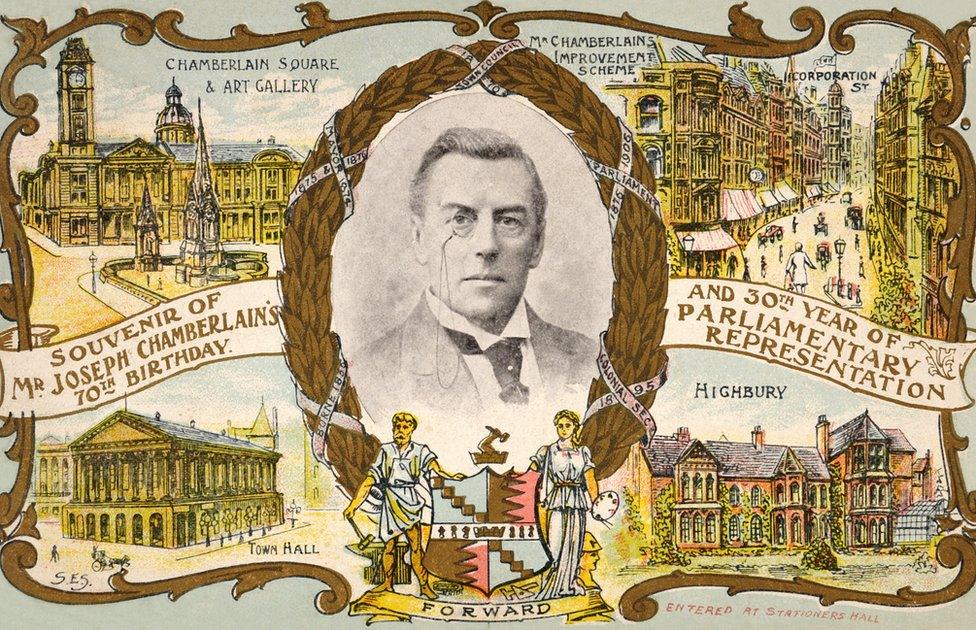
In the 1990s and 2000s, however, that support eroded. Even in the 2010 and 2015 elections, the Conservatives struggled to appeal in urban Britain and to a significant proportion of the population who felt "left behind" by globalisation and free-market economics.
As the recent Brexit vote demonstrated, that part of the electorate is growing and angry. Theresa May and Nick Timothy appear to be stealing some of Chamberlain's clothes and approach in an attempt to win them back.
But this would be quite a shift. Chamberlain does not sit within the tradition of free market, laissez-faire economics and enthusiasm for globalisation to which the Tory party has been committed since the days of Margaret Thatcher.
He was a full-throated economic interventionist, called a "gas and water socialist" by his enemies on the right. He took profit-making private enterprises into public hands, declaring that "profit was irrelevant".
It's difficult to imagine any Conservative politician from the last 40 years saying the same. Moreover, he was a protectionist, arguing for tariffs on goods from all countries outside of the British Empire.
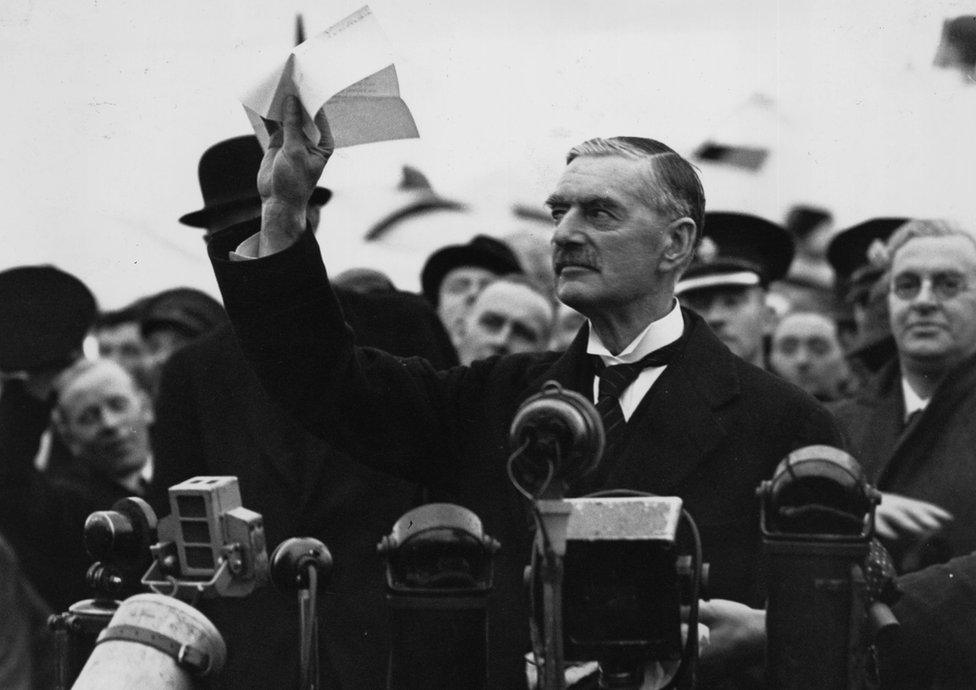
Joseph's son Neville Chamberlain making his "Peace for our time" address in 1938
And what would a Chamberlain approach mean in practice? Well we've already seen hints of it from the new PM. An industrial strategy, the government intervening in markets to protect certain industries; workers on company boards; economic protectionism - note her delay of the Hinkley Point project - a reduction in immigration and a greater focus on devolution of powers to cities and local government.
Chamberlain never became prime minister but he and his sons, Austen and Neville dominated politics in Birmingham and the Conservative Party up to the Second World War. He split with the Liberal Party over Ireland, and the Tories over trade, but nonetheless, he seems to be back in vogue.
But if Chamberlain really does prove to be Mrs May's inspiration, then Tories across the country should brace themselves for a bit of a shock. Because he really would represent the biggest intellectual shift the party has made since the mid-1970s. Churchill said of Chamberlain that he was a politician who "made the weather".
If Theresa May is serious about reawakening this strand of Conservative thinking, she may well yet do the same.
Lewis Goodall was reporting for BBC Newsnight. You can watch his report here